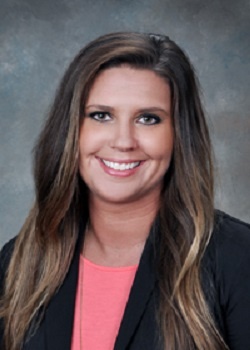Many employers routinely watch key financial metrics, such as current ratio and gross profit. But these aren’t the only measures you should consider monitoring. Recent years have seen the emergence of vital human resource (HR) metrics. These measures can help your organization make better-informed decisions about human capital, operations, and overall strategy. Here are three examples of critical HR metrics:
Buy Business Assets Before Year End to Reduce Your 2018 Tax Liability

Posted by Lesley L. Price, CPA on Nov 06, 2018
The Tax Cuts and Jobs Act (TCJA) has enhanced two depreciation-related breaks that are popular year-end tax planning tools for businesses. To take advantage of these breaks, you must purchase qualifying assets and place them in service by the end of the tax year. That means there’s still time to reduce your 2018 tax liability with these breaks, but you need to act soon.
Posted in Business Tax
How Auditors Assess Risk When Preparing Financial Statements

Posted by Aaron K. Waller, CPA on Nov 02, 2018
Every year, your audit firm will conduct a fresh risk assessment before the start of fieldwork. Why? Because your auditor wants to mitigate the risk of expressing an incorrect opinion regarding the accuracy and integrity of the company’s financial statements. Inadvertently signing off on financial statements that contain material misstatements can open a Pandora’s box of risks — from shareholder lawsuits to increased regulatory oversight.
Posted in Audit & Assurance
For certain employers, particularly small businesses, introducing a retirement plan for employees may seem like a daunting task. The company owner may feel that providing a full-blown 401(k) plan is his or her only choice, but that’s far from true.
Posted in Business Advisory
Selling Your Business? Defer — and Possibly Reduce — Tax With an Installment Sale

Posted by Michael D. Machen, CPA, CVA on Oct 29, 2018
You’ve spent years building your company and now are ready to move on to something else, whether launching a new business, taking advantage of another career opportunity or retiring. Whatever your plans, you want to get the return from your business that you’ve earned from all of the time and money you’ve put into it.
Posted in Business Tax
As we approach the end of the year, it’s a good idea to review your business’s expenses for deductibility. At the same time, consider whether your business would benefit from accelerating certain expenses into this year.
Posted in Business Tax
Analyze Your Health Plan’s Electronic Security to Comply With HIPAA

Posted by Amber Cochran Saxon on Oct 15, 2018
If you’re an employer that sponsors a health care plan, you may worry about inadvertently violating the Health Insurance Portability and Accountability Act — commonly known as HIPAA. But you should also bear in mind that there is a formal requirement for ensuring electronic data security. Specifically, sponsors of most plans must do a risk analysis to comply with what’s called the HIPAA security rule.
Posted in Payroll, HR & Benefits
Audit Opinions: How Your Financial Statements Measure Up

Posted by Melissa Motley, CPA on Oct 12, 2018
Audit opinions differ depending on the information available, financial viability, errors discovered during audit procedures and other limiting factors. The type of opinion your auditor issues tells stakeholders whether you’re in compliance with accounting rules and likely to continue operating as a going concern.
Posted in Audit & Assurance
Tax-free Fringe Benefits Help Small Businesses and Their Employees

Posted by Nick Wheeler, CPA on Oct 10, 2018
In today’s tightening job market, to attract and retain the best employees, small businesses need to offer not only competitive pay but also appealing fringe benefits. Benefits that are tax-free are especially attractive to employees. Let’s take a quick look at some popular options.
Posted in Business Tax
Should Cloud Computing Setup Costs be Expensed or Capitalized?

Posted by Aaron K. Waller, CPA on Oct 08, 2018
Companies will be able to capitalize or spread out the costs of, setting up pricey business systems that operate on cloud technology under an update to U.S. Generally Accepted Accounting Principles (GAAP). Here are the details.
Posted in Audit & Assurance



















